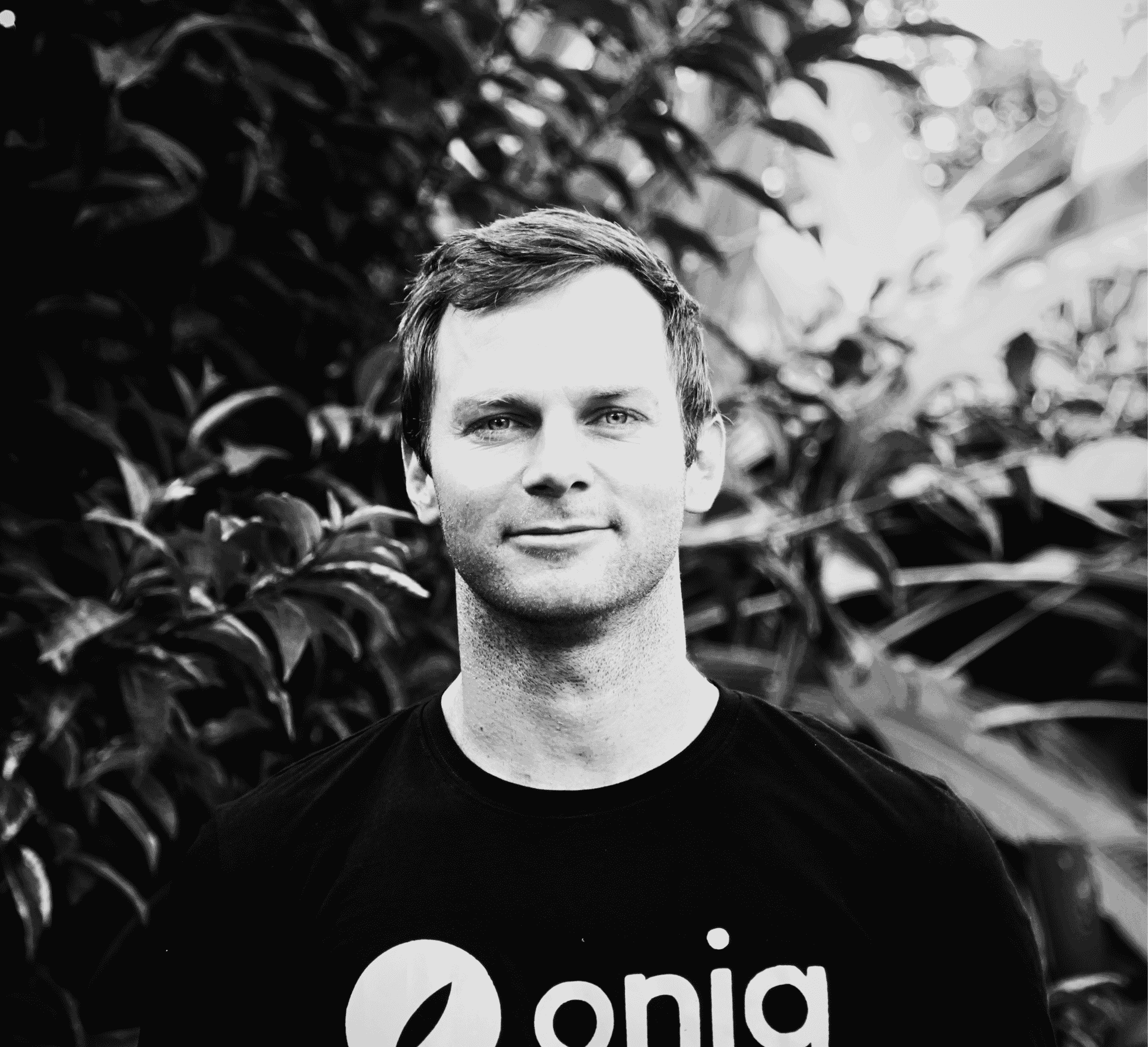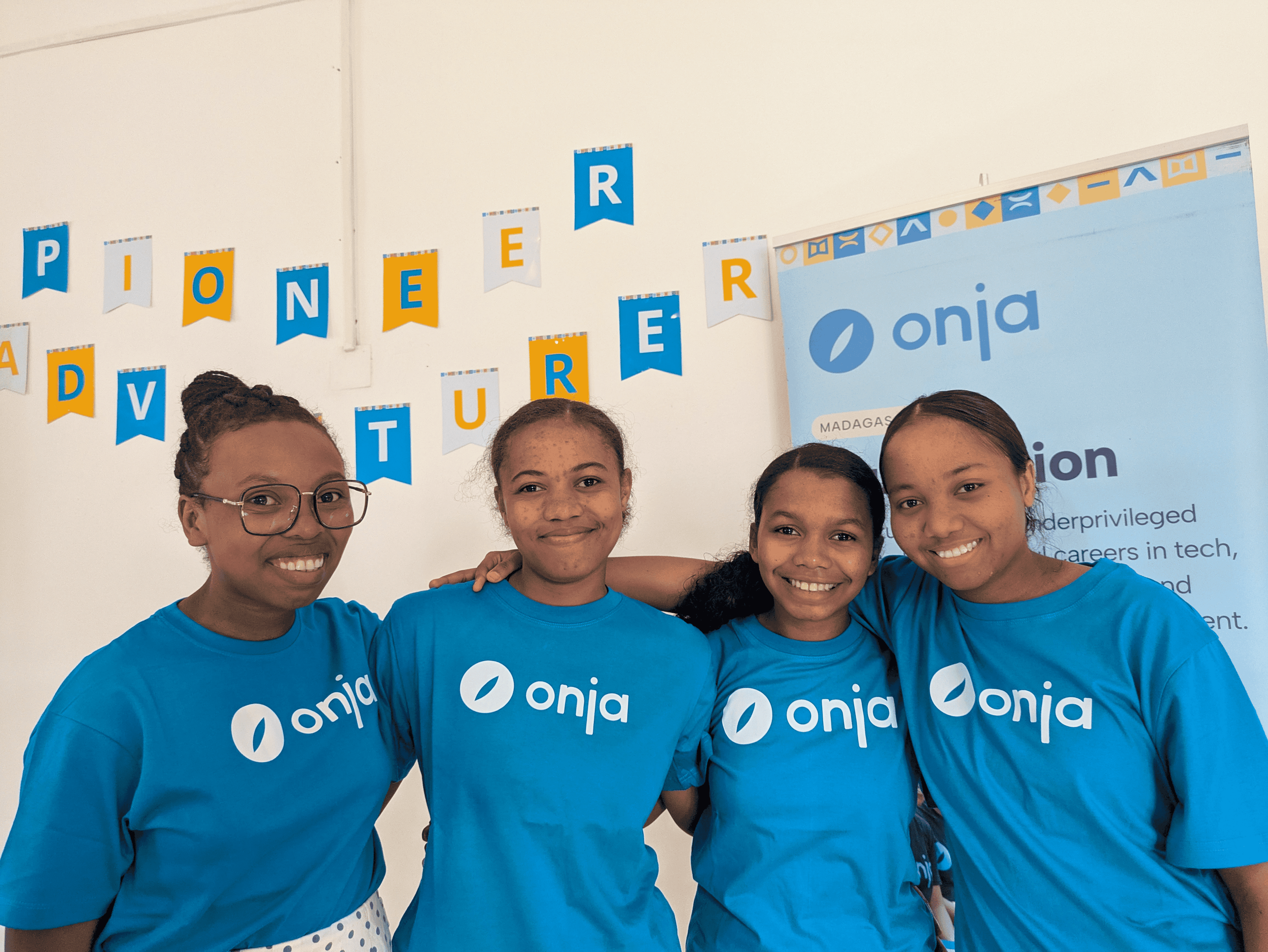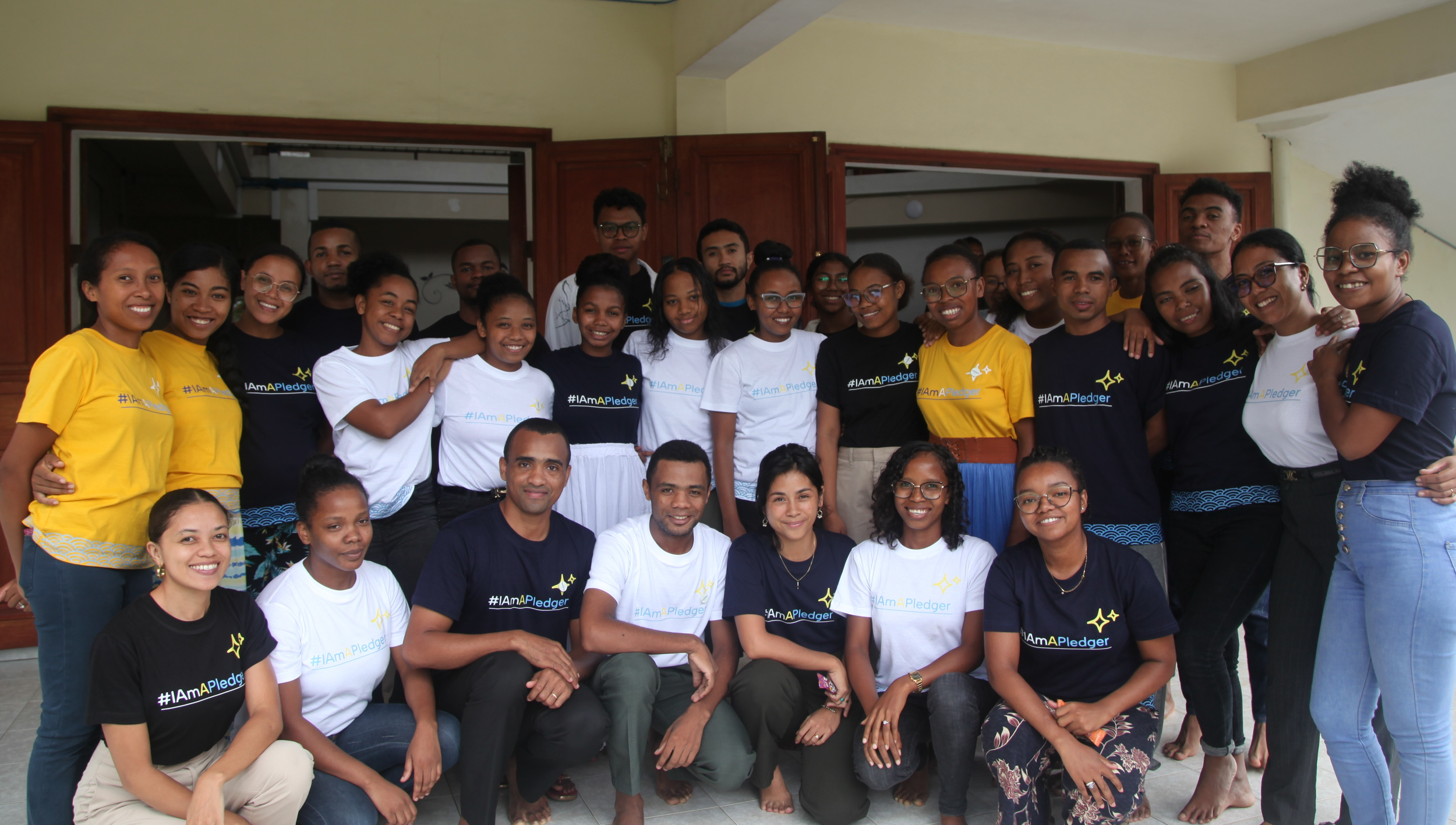Sam Lucas On Building Sustainable Social Enterprises Creating Global Careers For Underprivileged Youth
Sam Lucas is a social entrepreneur and founder of Onja, a Madagascar-based social enterprise that trains talented youth from underprivileged backgrounds in English and software development, connecting them to life-changing software development work.
Believing that talent is universal but opportunity is not, Sam is dedicated to unlocking potential in the world’s poorest communities.
To deeply understand local values, he spent a year living in a rural Malagasy village before launching Onja with the first cohort starting 2019. Using a unique recruitment strategy, Onja selected 30 high-potential students from an initial pool of 250,000. They graduated in 2021 and began working for international companies, earning transformative incomes. All profits are reinvested to train future students.
Sam holds a Bachelor of Engineering with First Class Honours from the University of Auckland and was named among the university’s “40 under 40” for his contributions to society.
Sam discusses harnessing education, technology, and outsourcing to create career pathways for underprivileged youth in Madagascar, and why trust, sustainability, and social enterprise models are key to transforming lives and scaling global impact.
Highlights from the interview (listen to the podcast for full details)
[Indio Myles] - To start off, can you please share a bit about your background and what led you to work in social entrepreneurship?
[Sam Lucas] - I grew up in New Zealand, but I’ve lived in Madagascar for almost 10 years now, essentially all that time working on this organisation, Onja.
I never set out to start a social enterprise, but I do remember always having a real desire to make the world better. In particular, the vast inequality affected me. I grew up in New Zealand; it’s not perfect, but there’s a lot of opportunity. Compare that with somewhere like Madagascar, where even some of the most talented, brightest people don’t get the chance to access a basic education.
I always wanted to do something to address that inequality. Over time, that turned into starting Onja. We set up as a social enterprise because we were confident it was the most impactful model, we could adopt to achieve our goal of bringing careers to students who otherwise wouldn’t have them.
As the founder of Onja, can you share a bit more about how you’re creating employment pathways for talented youth in Madagascar?
I mentioned our goal is to bring real careers to talented people who otherwise wouldn’t have them, and we do that through three steps.
Step one is recruitment. We find the highest-achieving students who can’t afford to continue their studies.
Step two is education. We teach English and software development through a two-and-a-half-year program at what you could call our version of a boarding school.
Step three is work. Upon graduation, our students join partner companies (mostly in Europe or the US) as remote, English-speaking software developers.
An important part of our model is making it sustainable. Our students are poor, so they can’t pay for anything. Everything is provided for them, accommodation, food, healthcare, tuition, everything they need for life and study.
The way we make this financially sustainable is that once our students graduate, Onja manages their employment contracts. Our partner companies pay Onja a monthly fee, which allows us to pay our developers a good salary, cover operational overheads, and reinvest what’s left to fund the education of future students.
We’re set up as a non-profit/social enterprise, so any profits we generate must go directly towards training more students. We’re fortunate to now be completely self-funding, and we have been for several years. We don’t rely on donations or grants for operations, although we do have a sizeable grant that supports our rapid growth, what you might call growth capital.
Social entrepreneurs often struggle with creating sustainable revenue stream to continue scaling their impact. What advice would you give an aspiring social entrepreneur who is passionate about solving a problem but unsure of how to build a business model around it?
It’s a hard question, and there’s no checklist. Like I mentioned, I never set out to start a social enterprise, it just turned out to be the arrangement that made the most sense and had the most impact.
It depends so much on what you want to do. In our case, we work with underprivileged students. They don’t have money, but they’re immensely talented, and together we create something that is economically valuable. If you’re in that position, then it makes a lot of sense to consider implementing a social enterprise model.
But it won’t always be the case. For example, if we were working in Madagascar with very elderly people in the countryside, I don’t see how you could easily create something that is economically valuable. In that case, a social enterprise model probably wouldn’t make sense. It’s very situation-dependent.
I would still encourage anyone to pursue a social enterprise model if at all possible, because it comes with so many advantages that help you achieve impact. Scalability is the key, if it’s a social enterprise and it’s performing well financially, then you can scale that impact.
What have been some of the biggest challenges you’ve faced in running a social enterprise in Madagascar, and how have you navigated those challenges to create impact with communities?
It’s a great question, and also a hard one, because there have been so many challenges that it’s difficult to pick out the most important. But a few things come to mind.
The first one (which I think is pretty universal) is hiring. If you have a good team, then you’ll succeed and achieve your mission. If you have a poor team, you won’t get anywhere. For me (and I think for most people) building the right team is the number one priority. It’s also the biggest challenge.
Onja is at a much more advanced stage now than it was in the early days. We’re about 70 or 80 people, and we have something tangible that people can see and be inspired by. That makes it easier to attract candidates. We’ve also learned a lot and developed a strong screening process to find people who are the right fit for us. But if I think back to the beginning, it was tough. In fact, it was probably our biggest challenge at that stage.
On top of that, there are definitely cultural challenges to navigate. To summarise it, Western culture tends to be more direct and even confrontational, whereas Malagasy culture is much more gentle and anti-confrontational. We’ve had to work hard to ensure that Malagasy values are upheld, while balancing the tension that can arise when different cultural expectations meet.
It’s important not to be afraid if a small number of people disagree with you. That will always happen. But at the end of the day, we created Onja not to appease a Western worldview, but to have a strong impact here in Madagascar. That remains our focus.
A lot of people we speak with on the podcast highlight the importance of trust building and co-creating solutions with communities. What are your thoughts on building trust?
That’s certainly one of the big challenges, building trust. The first place to start is by acknowledging the context. In a place like Madagascar, which is very much a developing country, trust works very differently.
In New Zealand, for example, there’s an inherent trust in authorities and institutions. But in developing countries, that’s not the case. People are used to authorities letting them down, and not just authorities: also international NGOs or people like me, who come to Madagascar, promise the world, and then leave after a couple of years. That pattern happens over and over again, so from the very beginning, you’re up against a lack of trust.
If you acknowledge it and make building trust a real priority, you can overcome this distrust. For us, it was essential. With our students, for example, coming from that background, trust had to be there. Fortunately, from the start we had such an amazing and trustworthy team.
Two of our earliest team members, in particular, come to mind. They were such wonderful people of strong character that you couldn’t ask for anyone better. That made a huge difference and really helped us establish trust early on, which has continued to be vital for Onja.
You’ve placed a strong focus on education and technology. Why do you see these as powerful tools for unlocking opportunities?
There’s huge potential in both education and technology, and that’s exactly why we chose them. At Onja, we focus on software, and we really love that field because software is hard. To become a good software developer requires a certain amount of aptitude and talent, and then a huge amount of hard work. Because it’s difficult, it’s valuable, and it’s also interesting.
Our students and graduates get the chance to fully use their potential, which is satisfying in itself, and then there’s also the financial side. Software pays well, and that allows us to do amazing things. Students come through our program, graduate into good careers with strong salaries, and at the same time they’re paying forward that opportunity to others through our sustainable model.
There’s a lot of potential there, but I wouldn’t say software is the only pathway to achieving our mission. I think there are many other avenues that could work. To me, the key is remote careers. We prepare students for remote jobs; it just happens to be software right now. As long as the work is economically valuable and “remoteable,” then this model works really well.
That’s especially important given the current state of the software industry. There are still many opportunities, but the market isn’t what it was a few years ago, so we may be exploring other avenues as well.
When we think about social enterprise and business for good as a movement, what opportunities or key trends do you think social entrepreneurs should be paying attention to?
I can’t say I’m the best person to answer this question, because I wouldn’t describe myself as being super connected within the wider social enterprise space. I lead a social enterprise that’s doing well, but I don’t spend a lot of time observing trends.
That being said, there is one field I’d highlight (not so much as an opportunity) as an important area that needs people with social motivation and business acumen. That field is artificial intelligence.
When I talk about AI, I mean the new wave technologies like artificial neural networks and deep learning. There’s no doubt AI brings enormous potential, but it also carries extraordinary risks. In my view, those risks are being massively under-hyped, and we’re going to need a lot of talented, socially-minded people working in that space. We need people with the heart to do good in the world, but also the business skills to navigate such a powerful force responsibly.
Is there any other advice you’d give to someone starting out on their journey to creating a social enterprise?
I think the generic things are still the most important things. You’ve really got to believe in yourself, believe in the mission, and back yourself strongly.
It’s also vital to know who you’re fighting for. In our case, it’s underprivileged youth in Madagascar who don’t have opportunities. Those are the people we work with every day, but also the ones we haven’t met yet; the students who will come to us in the future.
Knowing why you’re doing it, who you are, and who you’re fighting for is incredibly important. For me, faith also plays a role; I’m religious, so there’s a strong element of God in what I do. But in general, having something that grounds you and your why is essential. It helps you back yourself and stay true to the mission.
What inspiring projects or initiatives have you come across creating positive change?
One that always comes to mind is another organisation in Madagascar that a friend of mine founded. It’s called Teach for Madagascar (TFM).
What they do is create volunteer opportunities for educated Malagasy people, often university graduates. These volunteers spend three to six months living in small rural villages, serving the local community (almost like an internal Peace Corps).
I always find their work very impressive and inspiring.
To finish off, what books or resources would you recommend to our audience?
There are quite a few I’d recommend. First, I’d highlight Magatte Wade. I don’t think she has a book, but she’s created a lot of videos, talks, and podcasts. She speaks a lot of truths, even if some are difficult to hear. I think her perspective is especially valuable if you’re working in developing nations.
On that note, Dead Aid by Dambisa Moyo is another important resource. She was one of the pioneers in questioning traditional models of aid, and I think she raises a lot of excellent points.
A third recommendation is The Hard Thing About Hard Things by Ben Horowitz. It’s not a social enterprise-specific book, but a pure business advice book. The challenges and operations of running a social organisation and a for-profit startup are, in my view, 90% the same. The difference lies in the end result. At Onja, we’re focused on creating impact, but the way we do that is very similar to how a startup operates.
That book was incredibly helpful. As I was reading through it, I found myself saying, “oh my gosh, we’ve done that, we’ve made that mistake—I wish I’d read this two years ago.” It does take a little while to get going, and I nearly put it down at one point, but the real value kicks in about halfway through. It’s definitely worth persisting with.
Any final thoughts you’d like to share with our audience about your work and the future in general?
Not so much in particular, but I’d just say one thing.









